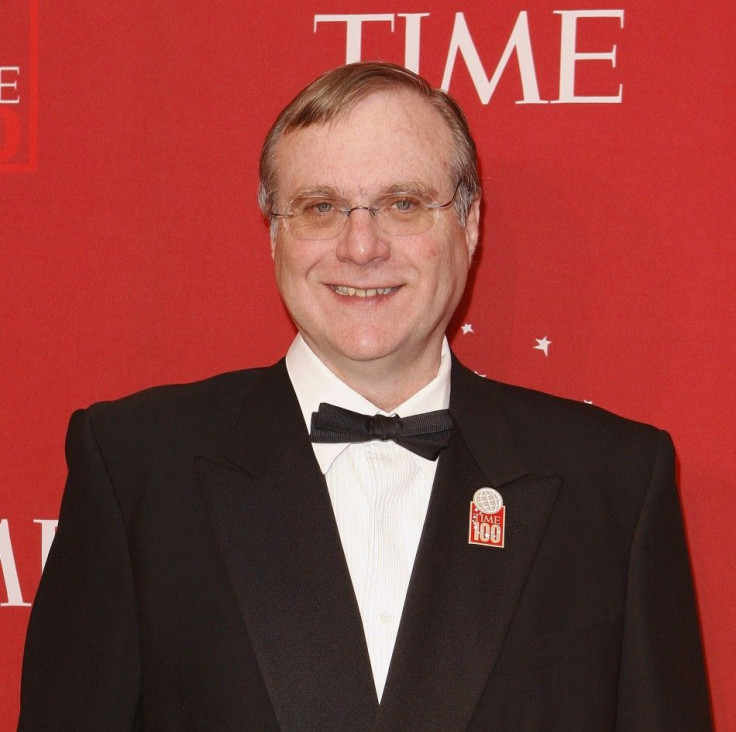Paul Allen: Why Microsoft's Co-Founder Donated $300 Million To Brain Research

Paul Allen, who helped co-found Microsoft alongside Bill Gates in 1975, has donated $300 million to The Allen Institute for Brain Science, based in Seattle. The Allen Institute is launching a 10-year plan to expand research into the inner workings of the brain and how to best treat brain-related disorders, and Allen's $300 million contribution will reportedly help sustain this program for the first four years.
The accomplishments of the Institute have been truly remarkable, Allen said. With its disciplined, mission-focused approach, the Institute has successfully tackled big-science projects, delivering tangible results that are helping to advance brain research around the world every day. I am excited to expand the scale and scope of the Institute's efforts, and I look forward to seeing what we will accomplish in the future.
Allan Jones, CEO of The Allen Institute, said this program is necessary in order to understand better treatments for autism, depression, Alzheimer's disease, brain injuries, and other brain-related diseases.
Paul Allen's generosity and bold vision have allowed us to build a unique organization and advance brain research in ways that wouldn't be possible otherwise, Jones said. This new funding enables us to apply our structured, industrial-scale approach to science to tackle increasingly complex questions about how the brain works.
The Allen Institute will reportedly double its staff to more than 350 employees in order to support the new initiatives. The non-profit has also begun to gather a powerhouse of leaders in the field, including doctors and scientists from Caltech, Harvard and Stanford.
The Allen Institute's groundbreaking approach -- the way that it conducts 'big science' in an 'open science' fashion-has been a game changer in neuroscience, said Susumu Tonegawa, a Nobel Laureate and director of the RIKEN-MIT Center for Neural Circuit Genetics, based in Cambridge, Mass. The Allen Institute is making it possible for the world's scientists to carve inroads in understanding and treating human brain impairments that otherwise would be decades away.
Allen helped establish The Allen Institute with his sister Jo Lynn in 2003, pledging a seed fund of $100 million at launch and another $100 million since then.
Allen's generous contribution is nothing out of the ordinary; in fact, the Microsoft co-founder was actually named the most charitable living American in 2011, with his donations totaling $372.6 million. Allen may beat that mark in 2012 with such a powerful single donation so early in the year.
Allen gives a lot of his money away, but he has plenty of ventures that keep his funds alive. Allen not only enjoys the pleasures of being Microsoft's co-founder, but he also has a multi-billion dollar investment porfolio (via his philanthropic group, Vulcan Inc.) that includes technology companies, media companies, and real estate holdings. Allen also owns some professional teams, including the NBA's Portland Trail Blazer and the NFL's Seattle Seahawks, and he is also part-owner of the MLS's Seattle Sounders FC.
Allen spreads his wealth around, but he genuinely cares about health issues, specifically related to neuroscience and the brain. In 2008, Allen used $41 million to build an online Allen Spinal Cord Atlas gene map, which offered profound potential for researchers to unlock the mysteries of the spinal cord and how it is altered during disease or injury.
Allen cares about health and disease research because he has personally dealt with similar issues himself. In 2009, Allen was diagnosed with non-Hodgkin lymphoma, for which he received several months worth of radiation treatment. He has been cancer-free since October 2010.
But since Allen left Microsoft in 2000, it's been in his character to give back. He donates funds to art institutes, science and technology foundations, and other promising ventures that blend research and science. With all of the mysteries inside the brain that could unlock treatments and cures for many troubling ailments, Allen felt obliged to offer a big sum of money, almost as much as he donated in all of 2011. It's a generous gift on Allen's part, but it surely won't be his last.
© Copyright IBTimes 2025. All rights reserved.






















